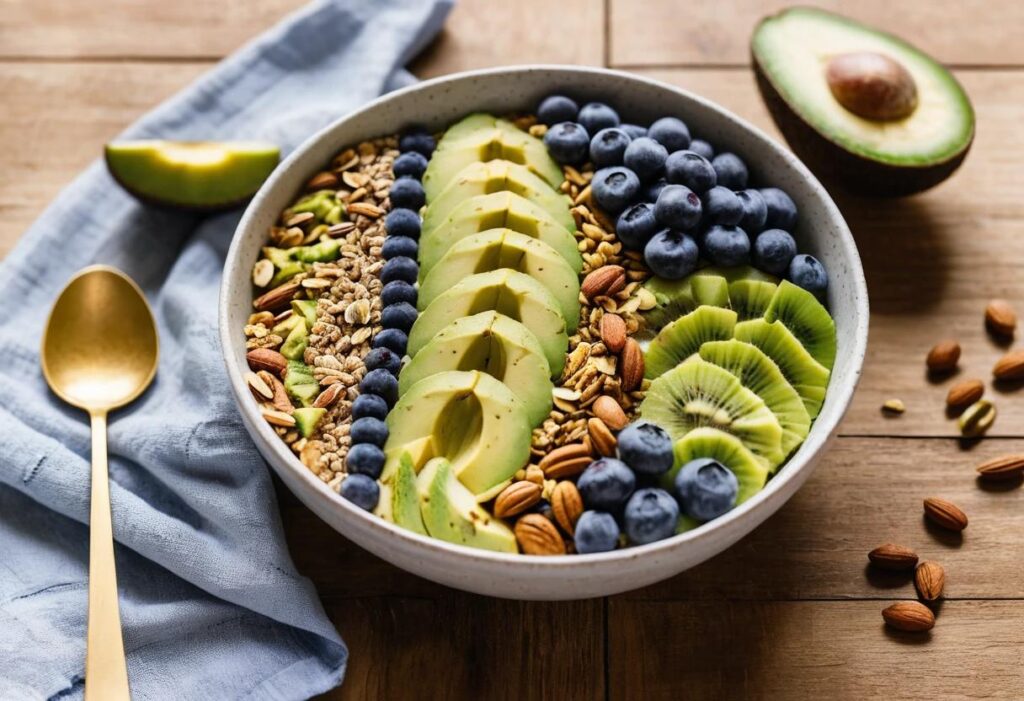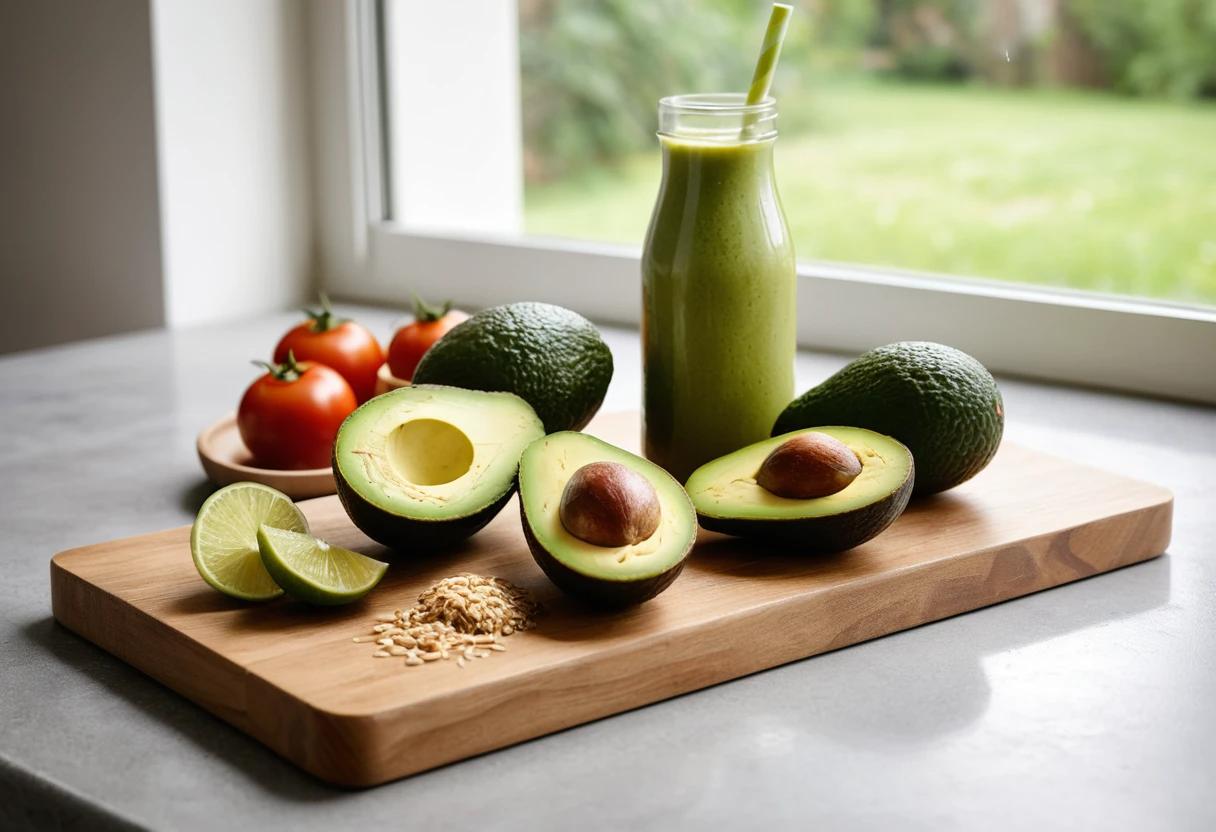Avocados are a versatile and nutrient-packed superfood, but how many times a week should you eat avocado for maximum benefits? This creamy fruit is a staple in many diets and offers numerous health benefits when consumed in moderation. In this guide, we’ll explore the ideal frequency for eating avocados, their advantages, and how to include them in your weekly mea

What Makes Avocado a Nutritional Powerhouse?
Avocados are packed with essential nutrients, making them one of the most nutrient-dense fruits. They stand out for their healthy fat content, primarily monounsaturated fats, which are linked to numerous health benefits.
Key Nutritional Benefits
- 30 grams of healthy fats, aiding in heart health and reducing bad cholesterol.
- 14 grams of fiber, essential for gut health and satiety.
- High in potassium, magnesium, and vitamins B6, E, and K.
- Rich in antioxidants like lutein, which promotes eye and brain health.
For those interested in exploring variations, avocado toast variations offer creative ways to enjoy this nutritious fruit while catering to different dietary needs.
Comparison to Other Healthy Fats
Unlike butter or margarine, avocado contains no cholesterol and is low in saturated fat. Swapping spreads for mashed avocado is a simple way to make meals healthier. For example, many recipes like Crunchmaster avocado toast creatively pair avocados with nutrient-dense crackers for a balanced snack.
Benefits of Eating Avocados Regularly

1. Enhanced Gut Health
The fiber in avocados supports gut microbiota, promoting a healthy digestive system. Research shows that eating avocados increases the production of short-chain fatty acids, which help maintain the gut lining. A 2021 study in The Journal of Nutrition found that daily avocado consumption reduced digestive inflammation.
For those looking to incorporate avocado in gut-friendly recipes, try pairing them with whole-grain crackers as seen in are Crunchmaster crackers vegan?.
2. Heart Health Benefits
Cardiovascular health is one of the key areas where avocados shine. The potassium content in avocados helps regulate blood pressure, while monounsaturated fats lower bad cholesterol (LDL) and maintain good cholesterol (HDL).
Replacing less healthy fats with avocado can significantly lower the risk of heart disease. Recipes like is avocado toast considered vegetarian? show how you can incorporate avocado into heart-healthy, plant-based meals.
3. Weight Management
Avocados are calorie-dense but highly satiating, making them excellent for weight management. The fiber and oleic acid in avocados promote feelings of fullness, reducing overall calorie intake.
A study published in Nutrients revealed that women who consumed an avocado daily reduced visceral fat—dangerous fat stored around internal organs. For tips on balancing avocado consumption, check out can you eat too much avocado toast?.
4. Cognitive and Skin Health
Rich in antioxidants like lutein and zeaxanthin, avocados support cognitive health and slow memory decline. Additionally, their vitamin E content hydrates and repairs skin.
For breakfast ideas that support brain and skin health, recipes like what are the ingredients in Dunkin’ Donuts avocado toast? provide inspiration.
How Many Times a Week Should You Eat Avocado?

“Understanding how many times a week you should eat avocado is crucial for balancing its benefits with your dietary needs.”
The frequency of avocado consumption depends on individual health goals and dietary needs. For most people, 2-4 avocados per week strikes a healthy balance.
General Guidelines:
- For weight management: Stick to half an avocado daily to avoid excess calories.
- For heart health: One avocado daily can replace less healthy fats in meals.
- For overall health: Eating avocados 3-4 times weekly provides consistent nutrient intake.
Factors to Consider:
- Caloric needs: Avocados are calorie-dense, so active individuals may consume them more often.
- Dietary preferences: Those following vegetarian or vegan diets can rely on avocado as a key fat source.
Explore ideas like is Dunkin’ avocado toast vegetarian? to learn how avocados fit into plant-based diets.
Potential Downsides of Overeating Avocado
While avocados offer numerous benefits, moderation is essential. Overindulgence can lead to the following:
1. High-Calorie Content
With 322 calories per avocado, eating multiple fruits daily may contribute to a caloric surplus, hindering weight management goals.
2. Allergies and Sensitivities
People with latex allergies may react to avocados. Symptoms include digestive discomfort and itching. If you suspect sensitivity, consult a healthcare provider.
3. Environmental Impact
Avocado farming is resource-intensive, requiring significant water and land. To reduce environmental strain, balance avocado consumption with other sustainable foods.
Tips for Incorporating Avocado Into Your Diet
Avocados are versatile and can be added to meals in countless ways. Here are some practical tips:
1. Selecting and Storing Avocados
- Choose avocados with firm, slightly soft skin.
- Store unripe avocados in a paper bag with bananas to speed up ripening.
2. Recipe Ideas
- Breakfast: Mash avocado on whole-grain toast or use it as a topping for eggs. Check out avocado toast variations for more ideas.
- Lunch: Add sliced avocado to salads or wraps.
- Snacks: Use avocado as a dip for crackers, such as Crunchmaster avocado toast.
- Dinner: Incorporate avocado into tacos or grain bowls for a creamy, nutritious addition.
3. Innovative Recipes
For those seeking unique avocado recipes:
- Avocado Chocolate Mousse: Blend avocado with cocoa powder, honey, and vanilla for a healthy dessert.
- Avocado Pesto Pasta: Use avocado as a base for a creamy, dairy-free pesto sauce.
FAQs About Eating Avocado
1. Is it OK to eat avocado every day?
Yes, eating avocado daily can be beneficial for most people. However, portion control is key to avoid excess calorie consumption.
2. Can avocados cause weight gain?
While calorie-dense, avocados are highly satiating, making them unlikely to cause weight gain when eaten in moderation.
3. How much avocado is too much?
Eating more than one avocado daily may lead to calorie overload. Balance your intake based on dietary needs.
4. Is avocado toast vegetarian?
Yes, avocado toast is typically vegetarian. For variations, check out is avocado toast considered vegetarian?.
Conclusion:

“Incorporating avocados into your diet is simple and rewarding. Knowing how many times a week you should eat avocado ensures you enjoy its benefits without overindulgence.”
Avocados are a superfood worth adding to your diet. With benefits ranging from improved gut health and heart health to weight management and cognitive support, this versatile fruit fits into nearly any meal plan. For most people, eating 2-4 avocados per week provides the ideal balance of nutrients without exceeding caloric needs.
By incorporating avocados creatively, such as through recipes like avocado toast variations or Crunchmaster avocado toast, you can enjoy their health benefits while keeping your diet exciting and flavorful. Remember, moderation is key—enjoy the creamy goodness of avocados mindfully and sustainably.
